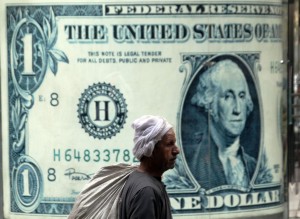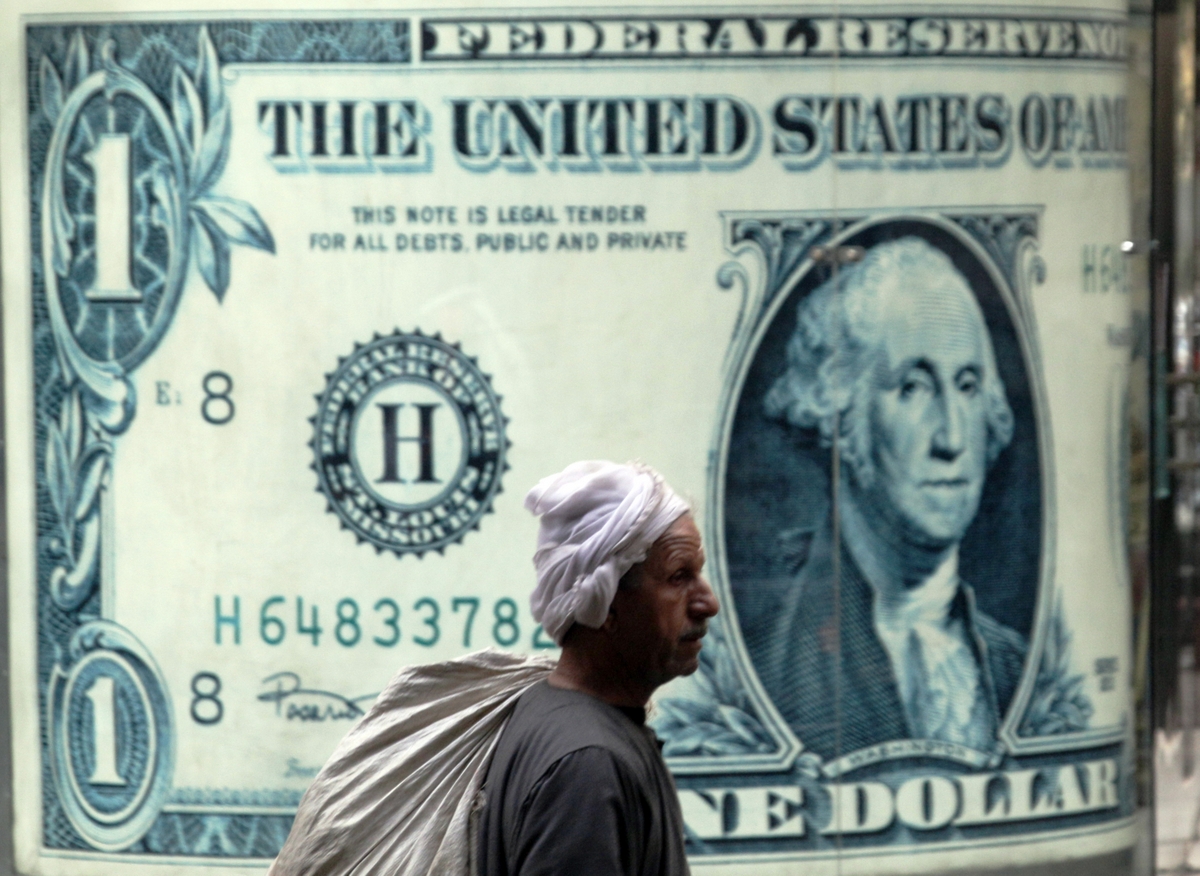
(AFP Photo)
The value of the Egyptian pound reached EGP 7 against the US dollar at commercial banks in Egypt.
Following the official continued devaluation of Egypt’s currency, the US dollar black market exchange rate soared to between EGP 8.05 to 8.25.
The fall in the value of the Egyptian pound reflects a dwindling supply of US currency in Egypt. Banking experts speculate a further decline in the coming months, unless additional hard currency enters the market.
Financial and economic expert Magdy Tolba criticised policies enacted by Egypt’s Central Bank Governor Hisham Ramez to curb the decrease in Egypt’s foreign reserves, citing the dollar auction as a failing policy he initiated last December.
In an attempt to curb a run on the pound, which has fallen by nine percent against the US dollar since last December, the Central Bank began hosting dollar auctions to halt the sale of foreign currency.
The auctions are aimed at rationing Egypt’s supply of dollars, and giving priority to staple food imports.
As a result, companies have turned to “open markets” to fund imports and other common business activity.
“The auction that that bank initiated is not enough, in the midst of low tourism revenues, protests and low exports,” Tolba said. “It was expected that it wouldn’t work.”
Egypt’s foreign reserves, which stood at $36bn on the eve of the 2011 revolution, dropped to a critical low of $13.5bn at the end of February, which many experts reported to be barely enough to cover three months of imports.
The Central Bank, however, released a conflicting statement in late March, stating that “the foreign currency levels have not declined significantly in March as was reported,” even though the same statement said that the country used $1.3bn for imports to purchase basic commodities of food and oil.
The continued decline of the Egyptian pound’s value comes while the government attempts to cut the national budget deficit in order to secure the proposed $4.8bn International Monetary Fund loan.




